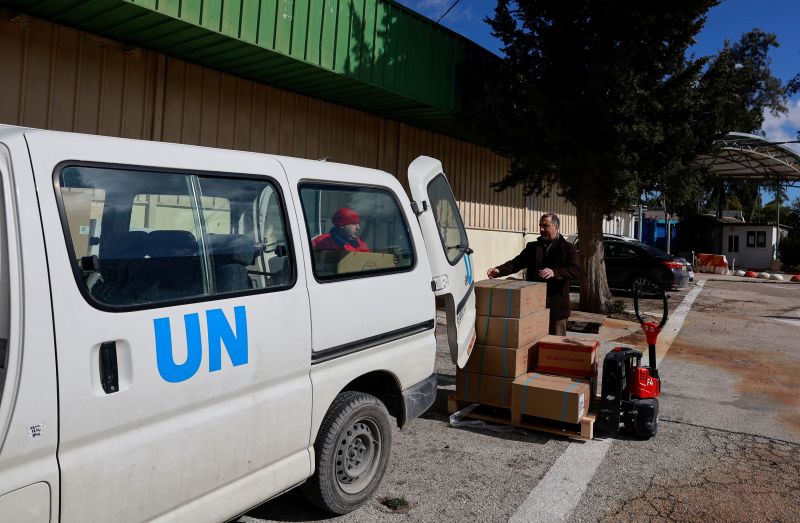
Israeli Lawmaker Leading Charge to Oust UN Agency Blames US for Meddling
The Israeli MP Behind the Bill to Expel a Key UN Agency Accuses US of Interfering with Process
The US and Israel share a complex relationship that often involves disagreements and tensions over various geopolitical issues. In recent times, a proposed bill put forward by an Israeli MP to expel a key UN agency has further strained the relations between the two allies.
The bill, which was introduced by Israeli Member of Knesset (MK) May Golan, aims to remove the United Nations Relief and Works Agency for Palestine Refugees in the Near East (UNRWA) from Israel and replace it with an Israeli-run organization. The agency has been a crucial player in providing assistance to Palestinian refugees in the region for decades.
Golan has been a vocal critic of UNRWA, accusing the agency of perpetuating the Palestinian refugee issue and maintaining anti-Israel bias. She argues that by expelling UNRWA, Israel can take control of the aid provided to Palestinian refugees and ensure that it is managed in a manner that aligns with Israel’s interests and security concerns.
However, the proposed bill has faced criticism and pushback from the United States, with US officials expressing concerns over the potential humanitarian consequences of expelling UNRWA from Israel. The US government has been a major contributor to UNRWA’s funding and has played a significant role in supporting the agency’s operations in the region.
The US interference in the Israeli legislative process regarding UNRWA has sparked a heated debate between the two allies, highlighting the complexities of their relationship and differing perspectives on the Israel-Palestine conflict. While Israel sees UNRWA as a problematic organization that hinders peace efforts, the US views it as a critical humanitarian actor that provides essential aid to vulnerable Palestinian populations.
The tensions between Israel and the US over the UNRWA expulsion bill underscore the challenges of navigating international relations and addressing humanitarian crises in conflict zones. As the debate continues, both countries will need to find a way to reconcile their differing views and work towards a common understanding that prioritizes stability, security, and humanitarian assistance in the region.
In the midst of these disagreements, the voices of Palestinian refugees who rely on UNRWA’s support must not be overshadowed. Their well-being and basic needs should remain at the forefront of any decision-making process, ensuring that humanitarian aid is delivered effectively and efficiently, regardless of the political dynamics at play.
As the Israeli MP behind the bill to expel UNRWA continues to advocate for its implementation, the broader international community will be closely watching the developments and their potential implications for the humanitarian situation in the region. Finding a balanced and constructive approach that addresses the concerns of all stakeholders involved will be essential in navigating this complex and sensitive issue.
